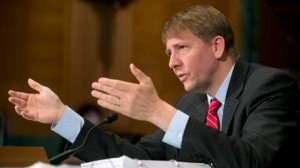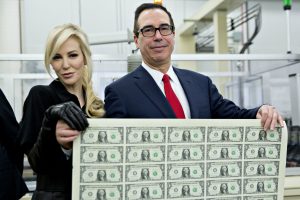 Washington, DC – 15 November 2017 – Richard Cordray, the Director of the Consumer Financial Protection Bureau (“CFPB”), announced Wednesday that he plans to step down from that post by the end of the month. Cordray’s term was otherwise set to expire in July of 2018.
Washington, DC – 15 November 2017 – Richard Cordray, the Director of the Consumer Financial Protection Bureau (“CFPB”), announced Wednesday that he plans to step down from that post by the end of the month. Cordray’s term was otherwise set to expire in July of 2018.
So, what does this mean for the collections and repossession world?
Don’t get too excited. Big ships move slowly and even with a more conservative appointment to this post by President Trump, changes to existing policies and procedures, that have been six years in the making, are likely to be slow to develop.
There has been talk of the appointment of Treasury Secretary Steven Mnuchin to this position, but the White House has been tight lipped as of now. Regardless of the future appointment, the White House has been critical of this previously autonomous regulating body that has operated, as designed, with impunity and without congressional oversight.
Even if a Trump appointment should begin to dismantle or weaken the powers of the CFPB, it is unlikely that many, if any of the lenders currently

under the punitive scrutiny of this body will reverse their previous policies and procedures on vetting, fees and security that were put in place as they are now considered “best practices” by most banking regulators and are unlikely to change.
Cordray’s voluntary departure had been predicted for some time based on speculation that he would return to Ohio to run for governor. There also had been the possibility that President Trump might fire him.
A federal appeals court decision in October 2016 that the CFPB was unconstitutionally structured due to the excessive autonomy Dodd-Frank granted its director, given that the president can only fire him for cause, has hung like a cloud over Cordray and the bureau. The appeals court is reconsidering its decision.
The immediate question is who will succeed Cordray. Under the Vacancies Act, a Senate-confirmed agency head such as the CFPB’s director must be replaced by another Senate-confirmed appointee.
There are no other such appointees at the CFPB, so the president will have to reach elsewhere in the executive branch to find someone to serve as acting director of the CFPB until a new permanent director can be nominated and confirmed by the Senate.
Appointing an acting director is an important decision the president must quickly make as the CFPB’s many critics want to see broad-ranging reforms quickly implemented at the agency. Those reforms would encompass both revising the rules the agency has adopted as well as the manner in which they are enforced.

One possible acting director is Treasury Secretary Steven Mnuchin, who would then delegate the day-to-day management of the CFPB to someone else. Most importantly to the CFPB’s critics, that person would begin to implement the desired reforms while waiting for a permanent director to be nominated and confirmed for a five-year term.
Once an acting director has been appointed, the president could take his time in filling the director’s position since that person’s five-year term as director would not commence until confirmed by the Senate. That would ensure that a Trump appointee would serve as CFPB’s director until several years after the president’s current term ends.
That prospect, a Trump-appointed CFPB director running the agency years into the future, should be very scary for the CFPB’s advocates, notably Sen. Elizabeth Warren (D-Mass.), who conceived the CFPB and has been a key defender of it since its creation.
Consequently, congressional Democrats and other defenders of the CFPB may come to support an idea backed by many Republicans, convert the CFPB into an independent, multi-member commission comparable to other regulatory agencies, such as the Federal Deposit Insurance Corporation, the Federal Trade Commission and the Securities and Exchange Commission.
Independent commissions have many critics, but a commission’s actions, and especially its rulemaking, are much less subject to the whims of a single person and the philosophical tilt of the current administration.
That is the case because individual commission members serve fixed terms and cannot all be from one political party. Consequently, the agency’s future actions usually are slower moving and more predictable, which the regulated entities find preferable.
Another important reform that should be enacted is to subject the CFPB to the appropriations process. Presently, it is funded by the Federal Reserve, but without any external limitation on how much it spends. That has led, among other things, to a scandalously expensive renovation of its headquarters.
A final decision in the pending appellate case mentioned above that found the present structure of the CFPB is unconstitutional could tilt Congress toward converting the CFPB into an independent, multi-member regulatory commission. However, the new acting director could kill that appeal before the court renders a final decision.
Recent financial regulatory reform initiatives, notably the Financial CHOICE Act passed by the House and the bipartisan reform initiative developed by Republican and Democratic members of the Senate Banking Committee, could become the legislative vehicle for restructuring the CFPB.
Cordray’s resignation increases the odds of that occurring in the near future.
Source: The Hill










Facebook Comments